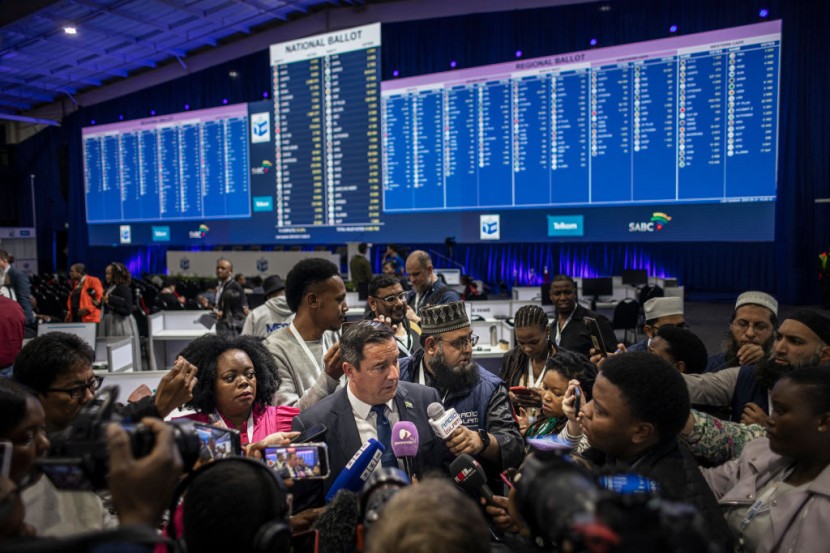
Partial results from Wednesday's election suggest that South Africa's legendary ruling party, the ANC, is on track to lose its parliamentary majority for the first time in 30 years.
With results from 75% of voting districts counted so far, the ANC is leading with 42%, followed by the Democratic Alliance (DA) with 22%, reported the BBC.
The uMkhonto weSizwe Party (MK Party) of former President Jacob Zuma trails behind with 13% of the vote, while the Economic Freedom Fighters party has garnered about 9%.
On Friday morning, the online system streaming the election results crashed, causing poll screens to show zero results.
South Africa's electoral commission issued an apology for the disruption and subsequently restored the service, ensuring that the poll results were not compromised.
Many voters hold the ANC responsible for the country's rampant corruption, crime, and unemployment.
The respected Council for Scientific and Industrial Research (CSIR) and News24 project the party's final vote at around 42%, down from 57% in 2019.
This would force the party to form a coalition to secure a majority in parliament.
The DA advocates for liberal economic policies, whereas both the EFF and MK Party support increased state intervention and nationalization, so the choice of a coalition partner will have a major impact on South Africa's future trajectory.
Prof. William Gumede, chairman of the non-profit Democracy Works Foundation, said, "It is unclear whether President Cyril Ramaphosa will remain in power, as he could come under pressure from the ANC to resign if the party gets less than 45% of the final vote.
"The ANC could turn him into a scapegoat, and a faction within the party could push for him to be replaced by his deputy, Paul Mashatile. The EFF and MK are also likely to demand his resignation before agreeing to any coalition with the ANC," Prof. Gumede told the BBC.
South Africans do not directly vote for a president; instead, they vote for members of parliament, who then elect the president.
An electoral official in Johannesburg told the BBC that the queues were similar to those seen during the historic 1994 election, when black people voted for the first time.
Sifiso Buthelezi, who voted at Johannesburg's Joubert Park, the largest polling station in South Africa, shared,
"Freedom is wonderful, but we must address corruption."
Final results are expected over the weekend.
© 2025 HNGN, All rights reserved. Do not reproduce without permission.









